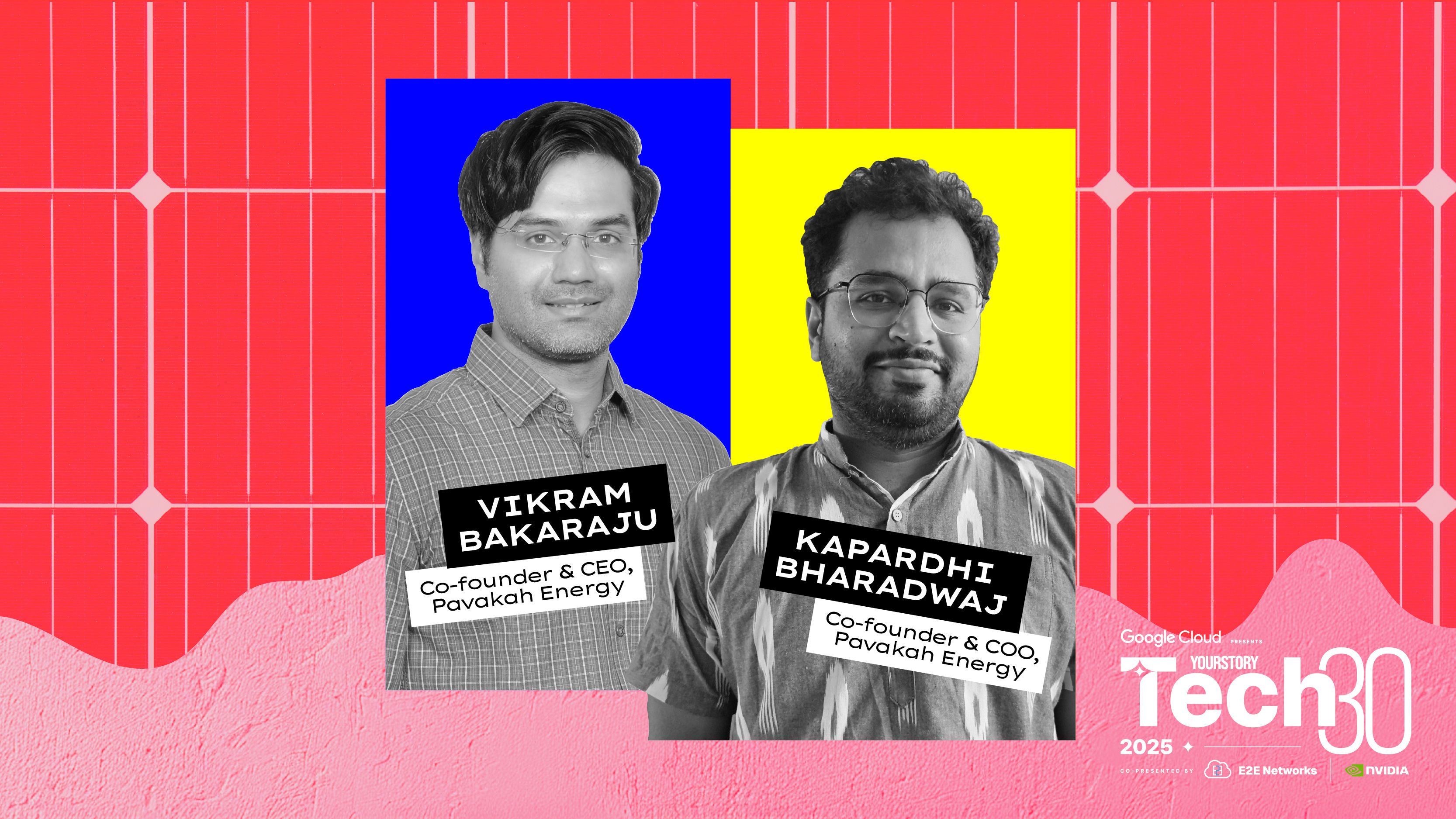Copyright yourstory

Despite growing awareness around sustainability, energy-efficient solutions continue to be expensive and difficult to implement. Pavakah Energy seeks to close this gap by enabling smarter, more accessible, and independent energy consumption through its innovative solar thin-film technology. In 2022, Vikram Bakaraju and Kapardhi Bharadwaj founded the startup at IIT Hyderabad to tackle the centralisation of energy, where energy generation and distribution are controlled by a few centralised sources, like large power plants powered by coal, hydro, gas, or solar and transmitted over long distances through grids to homes, offices, and industries. “There is a pressing need for technology that is affordable, reliable, clean, and user-centric,” Bharadwaj says. Co-founder and CEO Bakaraju leads product development and R&D, with 12 years of experience in experimental physics, primarily in optoelectronics. He has an MSc in Nanoscience from Swansea University. Bharadwaj, Co-founder and COO at Pavakah Energy, has 13 years of experience in the energy and public policy sector with an MBA in Energy Management. Solar thin film innovation Pavakah Energy has developed a solar thin film that can be applied like wallpaper on almost any surface, plastic, glass, or other materials. The innovation offers dual functionality: it generates solar power from incident light while reflecting UV and IR radiation, creating a passive cooling effect that reduces indoor temperatures by 3–5 degrees Celsius below outdoor levels. The film is lightweight, weighing less than 1 kg per square meter. "This is less than conventional thin-film silicon wafers that weigh around 6–7 kg/m², which makes it perfect for walls and structures that cannot support heavy panels," Bharadwaj says. Pavakah Energy's film utilises a simplified installation process that eliminates the need for drilling, mounting, or major infrastructure modifications, enabling the technology to be applied to vertical walls, slanted roofs, and other structures with limited load-bearing capacity. The photovoltaic film uses abundantly available materials to avoid rare-earth dependencies: titanium dioxide (TiO₂), commonly used in cosmetics and food-grade packaging, and PEDOT: PSS, a conductive polymer found in OLED and LED screens. The films are produced using inkjet and screen printing techniques in normal environmental conditions, lowering production costs and energy use. The film's current efficiency stands at 7%, with targets of 10% by year-end, 20% within 12 months, and 25% within 24 months, matching conventional silicon panels at 20–24%. Pavakah Energy has built a custom solar charge controller for easy integration with standard solar inverters. It has also developed a simulation tool to customise the film placement based on the surface’s potential for capturing sunlight and heat accumulation patterns across different building surfaces. Competitors, clients and funding The startup follows a B2B2C model, manufacturing the solar film and supplying it to EPC (Engineering, Procurement, and Construction) partners who handle installation for end clients. "Because this is a first-of-its-kind technology, we initially engage directly with customers to conduct pilot projects and prove performance before scaling full commercial installations through EPC partners," Bharadwaj explains. The energy startup primarily targets commercial buildings, office complexes, and warehouses, especially those pursuing green certifications. The startup competes with Apollo Power from Israel, Kardinia Energy from Australia, and competes with Waaree Energies and ART-PV India. Pavakah Energy has raised Rs 1.62 crore in pre-seed funding from Aar Em Ventures, US-based Wilbe Capital, Dholakia Ventures, and the Startup India Seed Fund. The startup is in the pre-revenue stage and expects to begin generating revenue by November. It was selected for the Brigade REAP Accelerator Programme and is conducting a commercial pilot project with Brigade Group at the World Trade Centre, Bengaluru. The roadmap ahead Pavakah Energy's future plans include building a strong presence in building-integrated and vehicle-integrated technologies, as well as installing its lightweight solar films on medium and large-sized trucks to power on-board electrical systems. The startup is also developing photon rechargeable batteries that store energy directly from sunlight, bypassing the grid, currently in the R&D stage. It plans to expand beyond India into South and Southeast Asia, the Middle East, Latin America, and Africa. "The long-term goal is to standardise Pavakah Energy's solar thin films globally as a cost-efficient, clean-tech energy solution," Bharadwaj adds. Pavakah Energy is part of YourStory’s Tech30 cohort—a selection of India’s most promising startups of 2025—unveiled at TechSparks Bengaluru.



